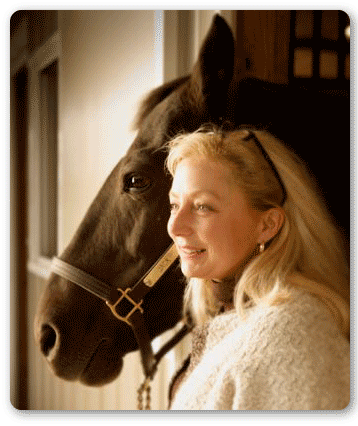Brrrrr ... it's getting cold! 5 Tips for Winter Horse Care
December is here! That means everything gets busier in this holiday packed month! And in our area, it's getting much colder, burrr!!! I'm sure your getting ready for shopping, wrapping or planning, so let me "dash away" without delay and give you 5 helpful tips for taking care of your horses in this cold weather season! By the way, for those of you that live in warm weather climates, (we envy you, and....), I'm sure that you too, will even get some useful ideas that will help you with your horses!
Tip #1.
Simple, yet important to remember: Be sure your horses have a reliable water source that does not freeze. The average horse drinks about 10-12 gallons of water per day, and even more when the weather is hot (20-25 gallons). When horses cannot get enough water, or only have extremely cold water, they tend to drink and eat less, which can lead to dehydration and/or colic. To avoid any problems from inadequate water supplies, make sure your water sources are well insulated in cold weather. For example, when water drains from the hydrant and settles around the base it freezes quickly. As you turn off your hydrant be sure that the dripping water does not accumulate at ground level around the base of your water source, which can cause freezing. Hydrants can be insulated by making a simple wood box that sits on the ground or floor level and then fill it with straw or insulation at the base of the hydrant at ground level. (This is a safer alternative than heat tape). Heated water buckets, heated waterers, and insulated buckets allow you to avoid the tedious job of breaking ice. Avoid allowing horses access to ponds or creeks that will freeze and not hold the horses weight.
Tip # 2.
Provide a shelter for your horses to get out of the wind. We have all witnessed the cold blustery days when our horses stand outside with their tails to the wind. Horses can handle quite cold temperatures if they have a good thick coat and keep dry. However, there are many times when your horses will need to get out of the wind and inclement weather. Provide a place where they can get into a sheltered area such as a 3 sided shelter, stall, or enclosed area. Be particularly watchful with older horses that may need additional care or even blanketing, as well as younger yearlings or foals. Periodically check your horses throughout the day when temperatures plummet. If you notice shaking, rolling, or a non-responsive attitude - call your vet. When temperatures and snow don't allow you the ability to turn out your horses daily, be sure to find a way to walk them, or at least have a small area where they can get some exercise to help them keep good circulation in the cold weather.
Tip #3.
Be sure to check for snow build up in your horses hooves. Packing snow will accumulate quickly and form a "snow ball" in your horses hooves making it very hard for them to walk. This is not only uncomfortable, but can cause a horse to lose traction and possibly slip. Avoid chances of pulled tendons or lameness by checking hooves daily. You can use Vaseline on the inside of the hoof and the snow will slip off.
Tip # 4.
Review how much grain your horse is getting in cold weather. If temperatures drop, you can give your horse a boost to help keep them warm through the grain that you feed. Corn can help to keep horses warmer and can be added to feed in cold weather. In order to not over feed, consult your vet or local granary. Recipes at granary's can be mixed giving your horse exactly what is needed to help boost circulation and provide additional minerals and vitamins.
Tip # 5.
Provide mineral salt blocks. Your horses instinctively crave minerals and salt when their diet lacks it. Salt will help to keep horses hydrated with an ample water supply and the minerals will support good body functions. Local farm stores and granaries carry blocks and as always, consult your veterinarian about any questions you have regarding winter care.
Here's to wishing you, your families, and equine friends a wonderful holiday season! And keep warm...burrrrr
 Debbie has over 45 years experience with horses and equine-related businesses. She has owned, trained, boarded horses and run stables at various times in her career. She is a certified fence installer, has given balanced riding lessons, and has shown horses in Western, Western Pleasure, Trail, English, Hunter/Jumper, Fox Hunting, Hunter Trials, Dressage and driving classes. Debbie has been involved in foaling, and just about every aspect of horse ownership possible, and she welcomes your questions and comments. If you are interested in using any articles by Debbie, please send her an email.
Debbie has over 45 years experience with horses and equine-related businesses. She has owned, trained, boarded horses and run stables at various times in her career. She is a certified fence installer, has given balanced riding lessons, and has shown horses in Western, Western Pleasure, Trail, English, Hunter/Jumper, Fox Hunting, Hunter Trials, Dressage and driving classes. Debbie has been involved in foaling, and just about every aspect of horse ownership possible, and she welcomes your questions and comments. If you are interested in using any articles by Debbie, please send her an email.
